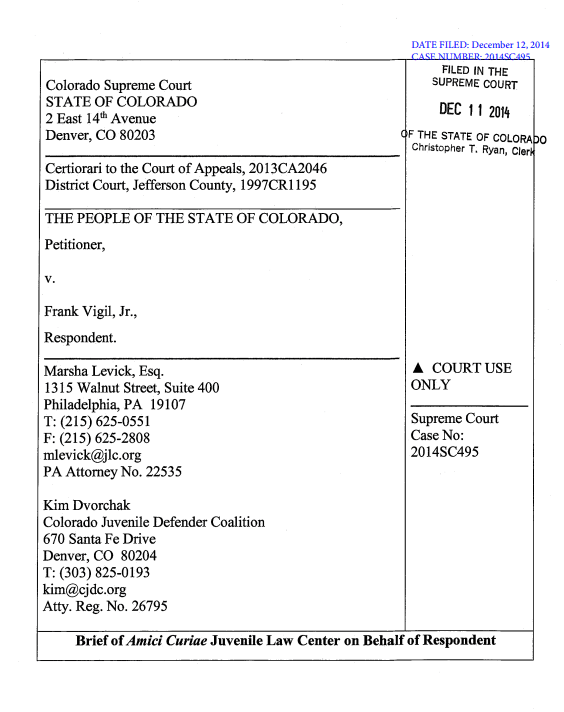
Summary of Argument
In Miller v. Alabama, 132 S. Ct. 2455 (2012), the United States Supreme Court held that the mandatory imposition of sentences of life without the possibility of parole on juvenile offenders convicted of murder is unconstitutional. At the time the Respondent, Frank Vigil, Jr., was sentenced for a crime he committed at age 16, state law mandated that he be sentenced to life without parole. As applied to juvenile offenders, this mandatory scheme is unconstitutional pursuant to Miller.
Miller applies retroactively to the Respondent. Miller announced a substantive rule, which pursuant to U.S. Supreme Court precedent applies retroactively. Further, even assuming the rule is procedural, Miller is a watershed rule of criminal procedure that applies retroactively. Moreover, Miller must be applied retroactively because, once the Court determines that a punishment is cruel and unusual when imposed on a child, any continuing imposition of that sentence is itself a violation of the Eighth Amendment; the date upon which a mandatory life without parole sentence is imposed cannot convert it into a constitutional sentence.